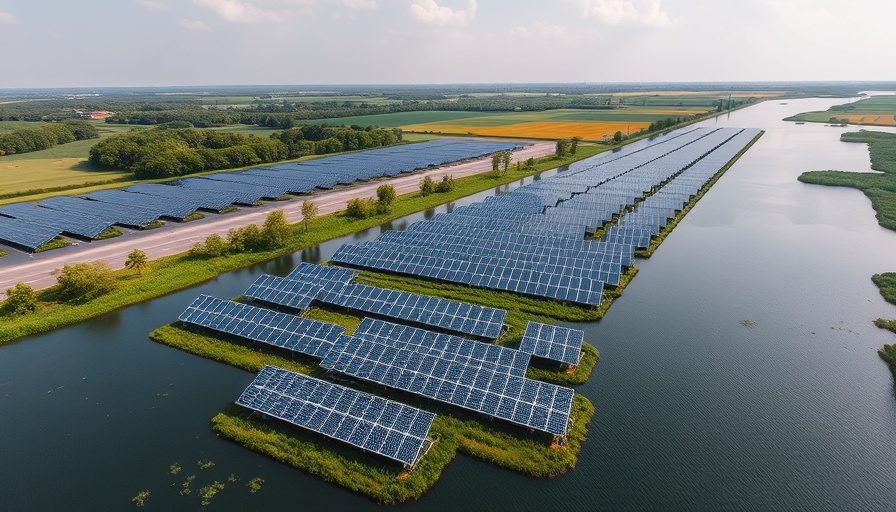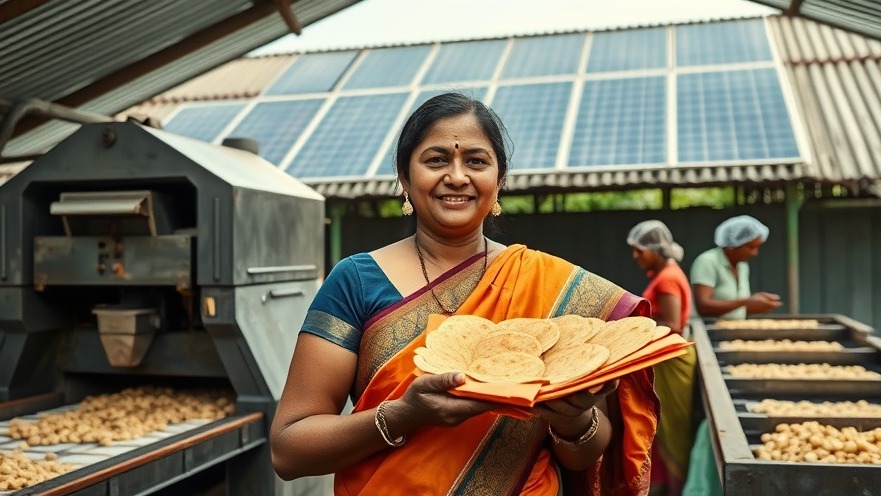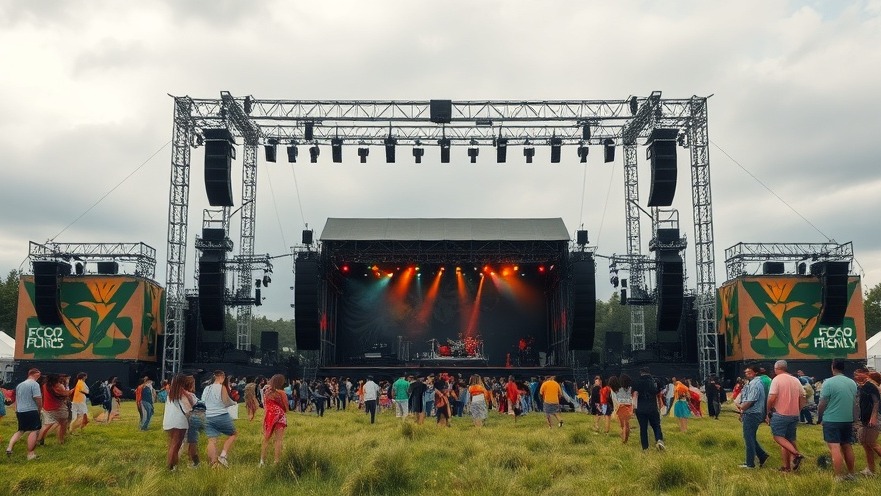
Europe Pioneers Sustainable Energy with Floating Solar Farm
The landscape of renewable energy in Europe is undergoing a remarkable transformation with the inauguration of the largest floating solar farm in France, Les Îlots Blandin. Situated on the site of former gravel extraction pits, this innovative facility is not merely a technological marvel but also a testament to the industry's growing commitment to environmental sustainability.
Turning an Industrial Past into an Eco-Friendly Future
Q Energy spearheaded the development of this 74.3 MW floating solar power facility, emphasizing a strategic choice to repurpose an industrial location. By doing so, they minimize land use conflict, an obstacle many renewable projects face, as stated by Corentin Sivy, the company’s development director. This project showcases how communities can pivot from traditional resource extraction to sustainable energy production, ensuring minimal disruption to local ecosystems.
Power Generation and Environmental Impact
Les Îlots Blandin features over 135,000 photovoltaic panels that harness solar energy primarily for local consumption, providing power for approximately 37,000 individuals. The initiative is expected to mitigate carbon dioxide emissions by roughly 18,000 tons annually, illustrating a significant stride toward Europe’s ecological goals. Additionally, floating solar solutions yield unique advantages including enhanced performance due to cooler temperatures and a dual solution for preventing water evaporation and erosion, making it a win-win for the environment.
Floating Solar: A Solution for France's Energy Challenge
France’s energy mix is evolving with renewable sources currently accounting for 24.2% of total electricity generation, fueled largely by wind and hydropower. As Q Energy points out, investing in floating solar installations could accelerate the transition to sustainable energy, supporting the nation’s ambitious goal of achieving net-zero emissions by 2050. This floating farm could pave the way not only for economic growth but also for a revolution in energy sustainability on a larger scale.
Addressing Challenges and Future Prospects
Despite the clear benefits of floating solar technology, economic barriers remain a concern. The specialized infrastructure for floating solar installations demands significant investment, which can deter potential developers. However, with ongoing interest from both private investors and public partnerships, innovative financing solutions might mitigate these hurdles, allowing more projects to flourish.
Community and Economic Implications
For boutique hospitality professionals focused on sustainable practices, the Les Îlots Blandin project illustrates how eco-conscious development can intertwine with local economic incentives. Small-scale lodging businesses often seek alignment with environmentally friendly practices, and initiatives like this empower them to advocate for renewable energy. Engaging with projects that emphasize sustainability not only fortifies brand values but enhances overall guest experiences.
The Path Ahead for Sustainable Hospitality
The nexus of floating solar technology and hospitality presents an opportunity to educate guests about environmental stewardship while enhancing operational efficiency. With the backdrop of such pioneering projects, boutique hoteliers can demonstrate their commitment to the planet, offering experiences that resonate with eco-conscious travelers. This synergy could help redefine the future of hospitality, wherein sustainability is woven into the very fabric of guest experiences.
Putting Sustainability into Action
As we look forward, the revolution in sustainable energy must be accompanied by community engagement and education. Initiatives like Les Îlots Blandin can serve as case studies for small-scale hoteliers who wish to incorporate renewable energy solutions within their operations. Investing in educational resources regarding clear strategies like chaos gardening, microplastics solutions, and promoting local nature reserves can amplify the impact of such projects.
Conclusion: The Call for Action
As the largest floating solar farm in Europe begins its operations, the hospitality industry, particularly the boutique sector, stands at a crossroads of innovation and environmental stewardship. It’s time for small-scale hotel operators to actively embrace these changes, collaborating with local initiatives aimed at sustainability. Doing so will not only enhance guest satisfaction but will also contribute profoundly to the urgent fight against climate change. Every small step towards sustainability counts—embrace this opportunity to make a difference in your business and community.
 Add Row
Add Row  Add
Add 




Write A Comment